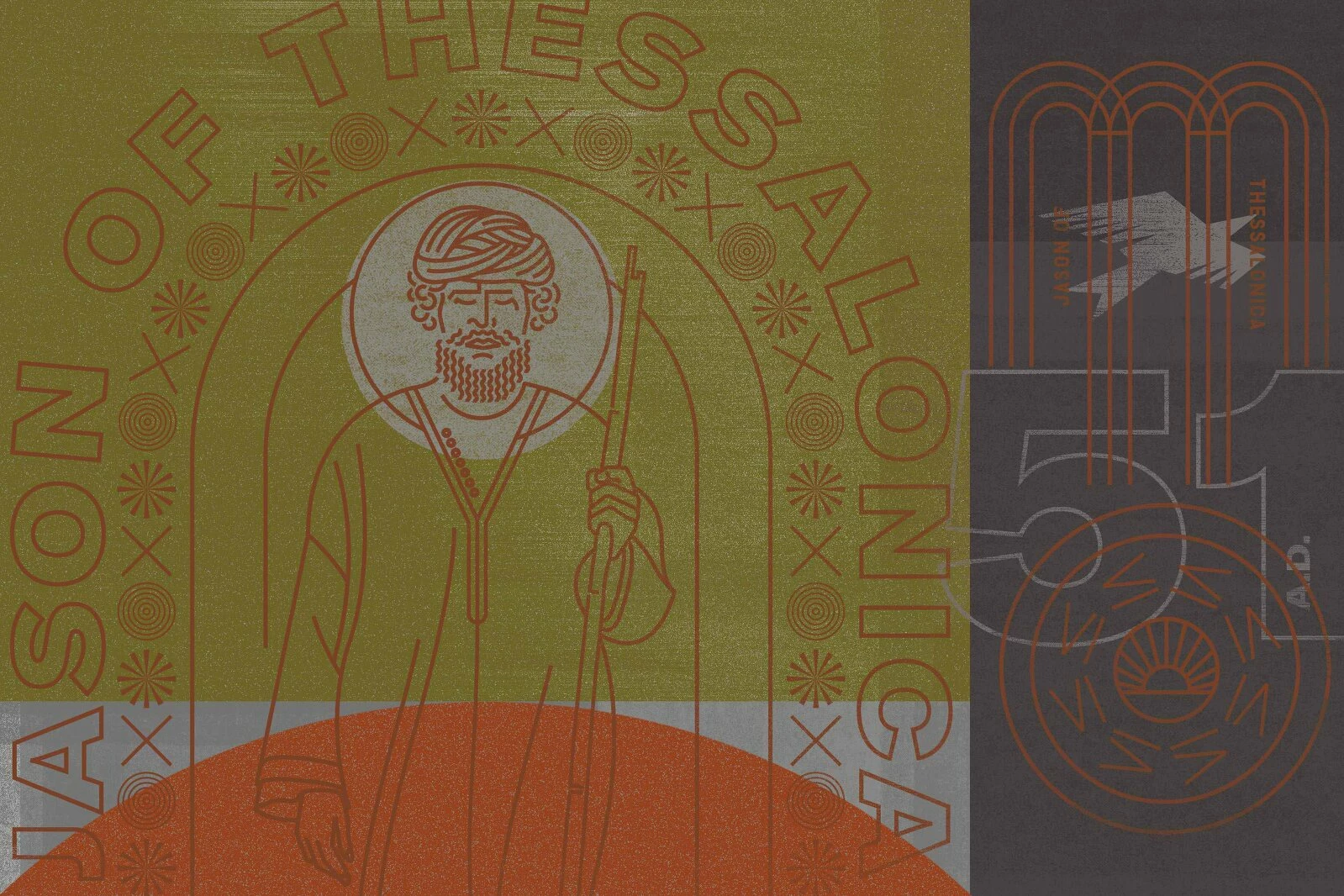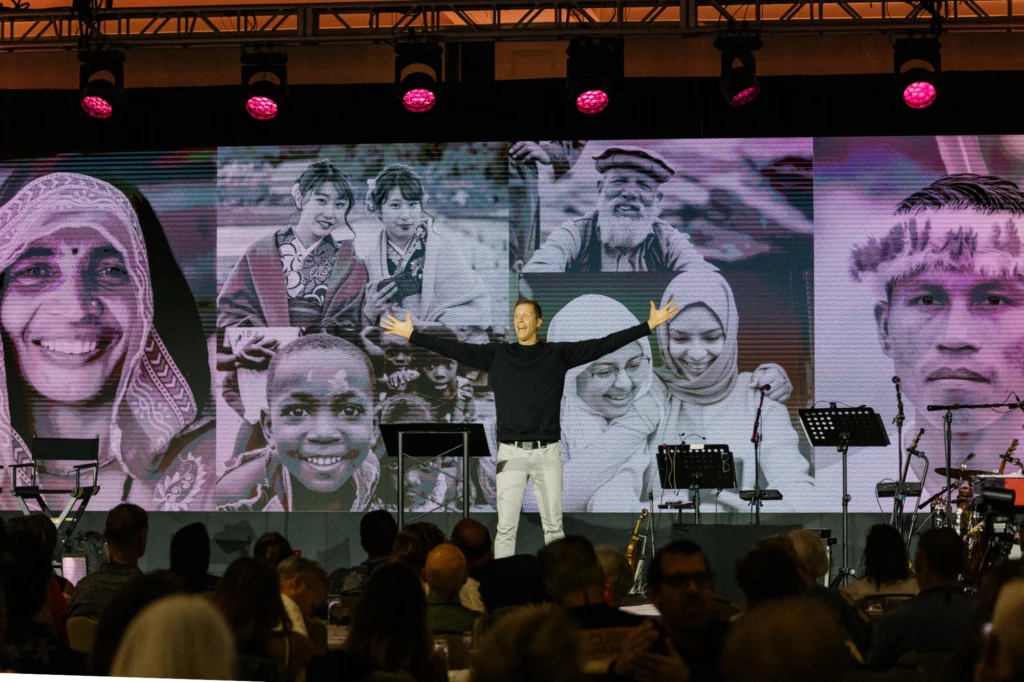Many of the world’s great cities are broken and depressed. Their luster has been lost and their people do what’s right in their own eyes. The choice for those of us who know and love God is we can retreat or we can rebuild.
Surprisingly, sometimes retreat is right. Jesus taught his disciples, “If anyone will not receive you or listen to your words, shake off the dust from your feet when you leave that house or town.” (Matthew 10:14) Several times in Scripture, we read of the apostle Paul retreating after the persecution became too dangerous. (Acts 14:5-7)
At other times, God calls his people to rebuild. Nineveh needed Jonah. Jerusalem needed Nehemiah. And Rome needed Paul, so he went — even when he knew that suffering awaited. (Acts 21:13-14)
In the first century, the city of Thessalonica resembled many of our cities today. People worshiped all kinds of gods. Archeologists have uncovered many Egyptian idols and Romans gods, even coins with Caesar’s image and the inscription of “God” on them. Thessalonica was a religiously charged environment. Government meetings often included sacrifices, prayers, and offerings to the gods. And into this city walked three missionaries named Paul, Silas, and Timothy.
A Vision
The apostle Paul had a vision in the night, “a man of Macedonia was standing there, urging him, and saying, “Come over to Macedonia and help us.” (Acts 16:9) This vision convinced Paul that God had called him to preach the gospel in Macedonia. His first stop was Philippi. His second stop, Thessalonica.
Upon arrival, Paul met a man named Jason. We know very little about Jason, but what we can gather is that Jason hosted Paul, Silas, and Timothy in his home for three weeks. (Acts 17:2, 7)
First-century Gospel Patrons often partnered with ministry leaders by hosting them in their homes. Jesus instructed his disciples to depend upon local hospitality. He said, “Whatever town or village you enter, find out who is worthy in it and stay there until you depart.” (Matthew 10:11)
In our day, givers and philanthropists often look for projects and causes they can fund, but we sometimes forget that projects can’t advance without people. People are God’s method. In 1910, pastor E.M. Bounds wrote, “The church is looking for better methods; God is looking for better men. The Holy Ghost does not flow through methods, but through men. He does not come on machinery, but on men. He does not anoint plans, but men.”
Jason saw the needs of three men, took a step of faith, and opened his home.
The Fruit of Hospitality
Jason’s hospitality was not something small or insignificant. It meant that the Thessalonians did not merely hear Paul preach for thirty minutes a week; they also watched his life. They witnessed his holy and righteous conduct. (1 Thessalonians 2:10) They saw Paul work night and day to model the value of hard work. (1 Thessalonians 2:9; 4:11)
Paul and his friends shared the gospel with the Thessalonians, but more than that, they shared their very lives. (1 Thessalonians 2:8) Paul could have given orders as an apostle, but instead, he wrote, “We were gentle among you, like a nursing mother taking care of her own children … like a father with his children, we exhorted each one of you and encouraged you and charged you to walk in a manner worthy of God.” (1 Thessalonians 1:7; 2:11-12) After three weeks together, the Thessalonians could tell what kind of man Paul was. (1 Thessalonians 1:5)
When Paul did preach, they were eyewitnesses to his boldness and conviction. He didn’t shrink from conflict or opposition. (1 Thessalonians 2:2) Paul did not flatter his hearers but spoke with power and the Holy Spirit. (1 Thessalonians 1:5)
Through Paul’s preaching and Jason’s generosity, a church was born. The Thessalonians received the word of God with joy. (1 Thessalonians 2:13) Many Greeks and more than a few leading women came to believe in Jesus as the Christ, who suffered and rose from death. (Acts 17:3-4) They turned from idols to serve the living and true God. (1 Thessalonians 1:6, 9)
Risk-Taking Partnership
But as soon as the church was birthed, the opposition began. Satan loves to kill things before they are born or in their infancy. Jewish leaders became jealous of Paul and stirred up a mob to attack the house of Jason and arrest Paul and Silas. (Acts 17:5) Jason’s house was searched, but the disciples were not found. The angry mob dragged Jason through the streets to appear before the city authorities, shouting:
“These men who have turned the world upside down have come here also, and Jason has received them, and they are all acting against the decrees of Caesar, saying that there is another king, Jesus.” (Acts 17:6-7)
The city authorities wanted some kind of pledge that this wouldn’t happen again. They understood that provision is a form of partnership. When Jason “received” these men he made a way for their message.
They took money from Jason as security. Later that night, Paul and Silas were snuck out of the city. (Acts 17:9, 10) But the faith and teaching they left behind would not be stopped. (1 Thessalonians 1:8)
Patrons Today
If the broken cities of our world are to be rebuilt and transformed, who will be the Gospel Patrons to rebuild New York? And who will take up London? And who will risk in Seattle? And who will keep believing for Silicon Valley? And who won’t give up on South Florida?
In our day, lodging is still one of the greatest needs of those who preach and teach the gospel in major cities. With real estate costs out of reach, ministry leaders often struggle to balance providing for their families and fulfilling their calling. Pastors and leaders all over the world pray for God to provide on this basic, but essential level.
I have known a few patrons who have been God’s answer to these prayers. Some have welcomed people to live with them in their homes or shared their extra bedrooms with missionaries passing through. Others have opened up their vacation homes or provided for leaders to take a Sabbatical. A rare few have given ministry leaders the money needed for a down payment on a house.
Our cities need many more preachers like Paul and many more patrons like Jason. Jason of Thessalonica is named in Scripture for the part he played and the price he paid for the gospel to go forth in his city. He’s not a footnote, he’s an example.
© 2024 John Rinehart



